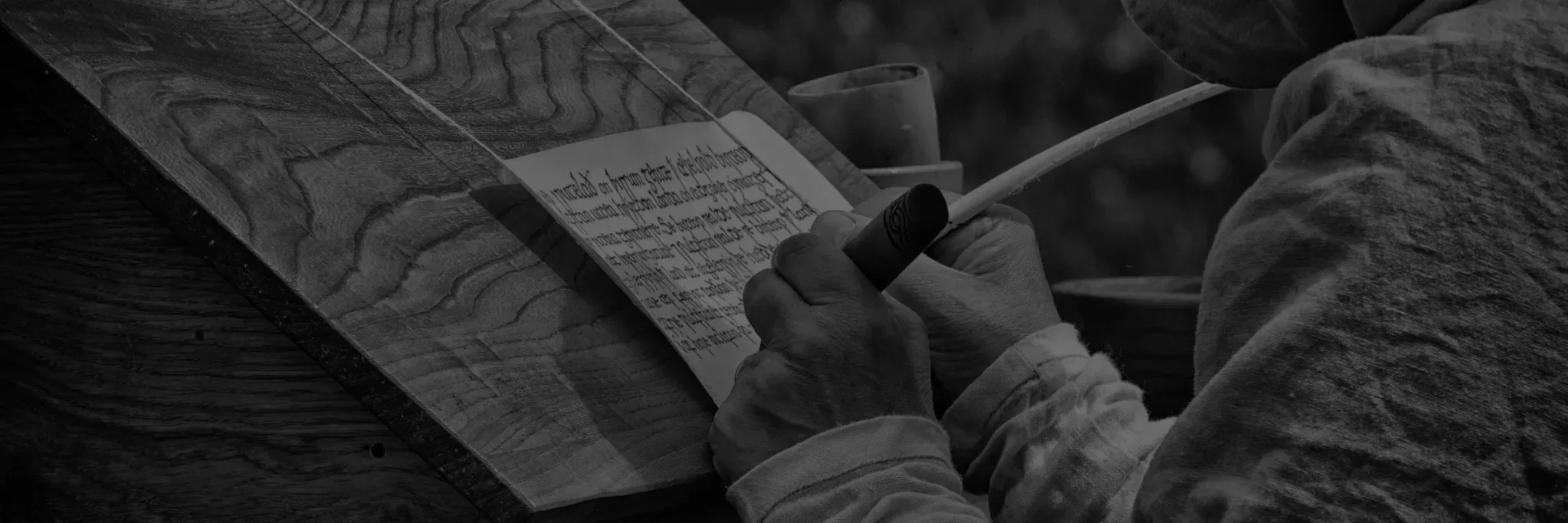Wirral's Hidden History Revealed
The English Civil War in Cheshire
A brief overview of the causes of the Civil wars and its effects on the Kingdoms. Cheshire was heavily involved in the English Civil wars which raged between 1639 and 1651. Several battles would take place within the county as well as a number of sieges.
The Massacre at Barthomely Church
Barthomely is a small village in Cheshire near to the Staffordshire border. The village is ancient and was settled during the Roman period. The village church still retains visible remains of Norman architecture. It is likely that a Saxon church predated the Norman one. The church is called St. Bertoline’s.
The Battle of Rowton Moor, 24th Sept 1645
The English Civil wars of the 17th century should properly be called the ‘Wars of the Three Kingdoms’. The wars were a series of Civil wars which took place between 1639 and 1651.
Eel Rents in the Middle Ages
During the early and mid-Middle Ages, coinage was not available to most people, so trade was often conducted by the bartering of goods. Many taxes too, were paid in kind. Rents were paid in goods such as ale, livestock such as pigs as well as many other types of food.
In þe Wyldrenesse of Wyrale
The following article is just a brief explanation of the Forest Laws that held primacy in the period between 1120 and 1376.
Mons Graupius AD83
Gnaeus Julius Agricola was born into a Senatorial family on the 13th of June 40 AD. His birthplace was in the Roman settlement of Forum Julii, now the city of Fréjus in what is now France. Beginning of
Timeline 2 – 420 – 616AD
Sub Roman Britain – Saxon invasions – Resistance – The Age of Arthur – The Forming of the Independent Kingdoms – Parochial Warfare. Following the withdrawal of the Roman army from the Province of Britannia and then the expelling of the last of the Imperial officials the history and the events that would follow are without doubt, the most confusing and often…
Timeline 1 – Roman Britain
Timeline 1 – Roman Britain – History of Britain from the invasion of Julius Caesar in 55 BC to the withdrawal of the imperial army in 409 AD.
Perceptions of the Wolf in Medieval Britain & Europe
Humans have a fascination with the wolf. Thousands of years ago, some wolves were domesticated and from them, man’s best friend, the dog, has evolved. Legends involving wolves and even werewolves have circulated since classical times and probably even earlier. Where not the founders of Rome suckled by a she wolf?
The Battle of Ellendune
Ellendun, the climatic clash between the Anglo-Saxon Kingdoms of Wessex and Mercia. The battle of Ellendune has been claimed to have been one of the most important and decisive battles in English history. In the 8th and 9th centuries, the Kingdom of Mercia was the most powerful and influential of the Anglo-Saxon nations. It had started to dominate the English Kingdoms of…
In þe Wyldrenesse of Wyrale
In þe Wyldrenesse of Wyrale – In the Wilderness of Wirral The following article is just a brief explanation of the Forest Laws that held primacy in the period between 1120 and 1376. The people of the Wirral lived under Forest Law for some 255 years. The laws were harsh and made life even more difficult than it already was and life…
The Battle on Mon Badonicus
Of all the legends of post Roman Britain the battle of Mons Badonicus or, as it is sometimes known, Badon Hill is one of the most enigmatic and fascinating events that took place in the history of the island of Britain. Was it a real event or was it a myth propagated by early Romano-British and Celtic scholars in order to create…
The St Brice’s Day Massacre
History is full of tales about massacres and here in Britain we have not escaped such events. The Peterloo riots, Boudicca’s slaughter of the inhabitants of London, the Glencoe massacre, the Welsh massacre of Normans and Flemmings in 1136 and the massacre of the Jews in York in 1190 are just a few of the better-known occurrences amongst many that were recorded….
Clairdon Hill, Thurso, Caithness
The last recorded battle between two Viking armies in Britain. (A tale from the Orkneyinga saga) In the year of 1138 the last battle between two Viking armies took place a few miles to the east of Thurso in Caithness, on a windswept hill overlooking the Pentland firth. The Orkney Islands can be seen from the hill on the far horizon, and…
Godred Crovan Haroldson – The Norse King of the Isle of Man
Godred Crovan Haroldson – The Norse King of the Isle of Man The Vikings did not just disappear from British and Irish history, they assimilated with the various peoples of Britain and formed unique cultures. This is a short article about one individual who continued in the vein of the first Viking invaders.

